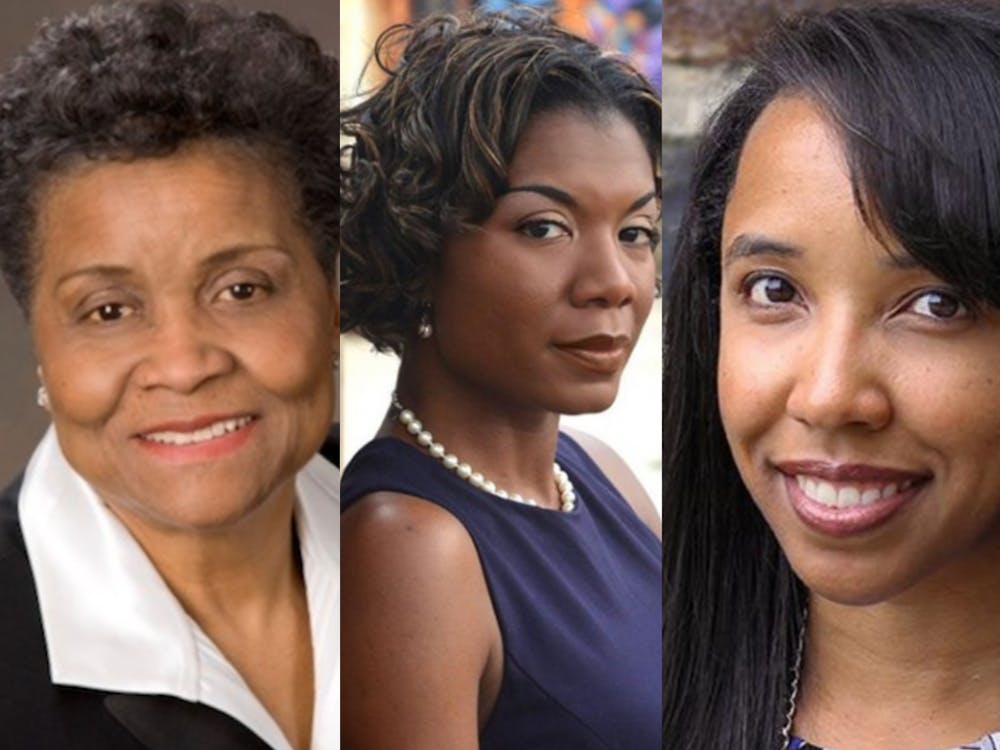North Carolina Gov. Roy Cooper partnered with the North Carolina African American Heritage Commission to honor a number of Black North Carolinians who have made significant contributions to STEM fields. Among them are one of Duke’s first African American graduate students Ida Stephens Owens, Graduate School ‘67; Shaundra Daily, professor of the practice of electrical and computer engineering; and Nicki Washington, professor of the practice of computer science.
Owens began Duke’s biochemistry and physiology doctoral program in 1962 and was the first Black woman to receive a doctorate from Duke. From 1967 to 2017, she worked for the National Institutes of Health, starting as a contributing researcher and eventually becoming a director in the National Institute of Child Health and Human Development. She studied the effect of genetics on drug metabolism and was the first scientist to discover a genetic defect that caused Crigler-Najjer disorder. She was further honored in 1992 with the NIH-Director’s award for her work on drug detoxifying enzymes.
Owens continued to stay active in university affairs after her graduation and served on the Trinity College Board of Visitors and the Women’s Studies Advisory Council. In 2013, she became the first recipient of the Graduate School’s Distinguished Alumni Award. The award is given annually to alumni who have received a doctorate from Duke at least 10 years ago and have “distinguished themselves in service to their fields of endeavor, to Duke and to society in general.”
Owens passed away in 2020 and is internationally recognized for her work on the genetics of human disease.
Washington, who has been a professor at Duke since 2020, grew up in Durham around a diverse community of academics, including her mom, a programmer-turned-manager who helped her understand the value of creating space for students and academics who may not fit the traditional mold of a computer scientist.
She began her career as a member of Howard University’s computer science faculty. Throughout her time there and later at Winthrop University, she helped roll out computer science courses across K-12 public schools, was inducted into the NCSU computer science hall of fame and published three books.
“The challenge that I found was that regardless of where I was, students—particularly Black students and others who were in minoritized groups—were always being pushed to the margins, and not just students, but also faculty,” Washington said. “Being a Black woman faculty member was not going to be something that everyone welcomed.”
According to Washington, most of the work she currently does was born out of experiences with colleagues, leadership and students. During her last year at Winthrop, she decided she wanted to try and bring more of the elements of cultural competence into the computer science space. By the time that idea was complete, Washington was at Duke, and the idea had become COMPSCI 240: Race, Gender, Class and Computing.
Daily studies the role of technology in the development of interpersonal skills like emotional self awareness and empathy. She began her career at Clemson University’s human-centered computing division after earning her doctorate at the Massachusetts Institute of Technology.
Since arriving at Duke, Daily has worked with the DTech program, supporting female-identifying students in thinking about their careers, connecting them with mentors and coaching to help them succeed at Duke.
Daily’s work has appeared in USA Today, Forbes, National Public Radio and the Chicago Tribune. Along with Washington, she was able to garner $10 million in funding from the National Science Foundation to start the Alliance for Identity-Inclusive Computing Education in 2021.
Daily also runs KidsHack, a company that looks at the development of technologies for social and emotional growth. One of their projects is an augmented reality, choose-your-own-adventure game for social skill learning, where the young adventurers have to make different social decisions to complete the game.
“I imagine a world where we have people with diverse identities coming together and solving the world's most pressing challenges and thinking about the role of technology in that. If you’re gonna work on a diverse team, you need interpersonal skills to make that happen,” Daily said. “Solving complex problems really requires diverse perspectives, and you can’t have only a small representation of your population at the table and expect that you’re going to develop solutions that really help everybody.”
Ayra Charania contributed reporting.
Get The Chronicle straight to your inbox
Signup for our weekly newsletter. Cancel at any time.
Ethan Niang is a Trinity sophomore and senior reporter of The Chronicle's 118th volume.

